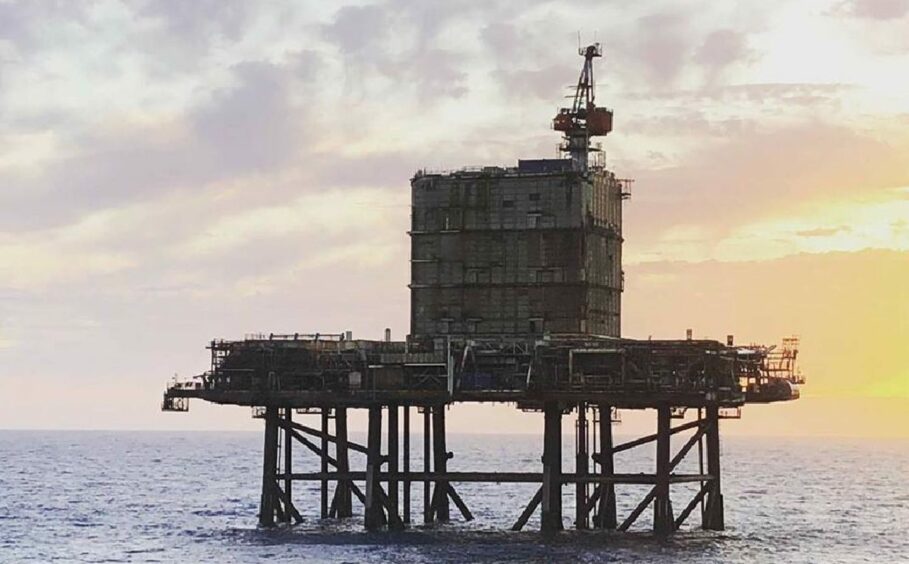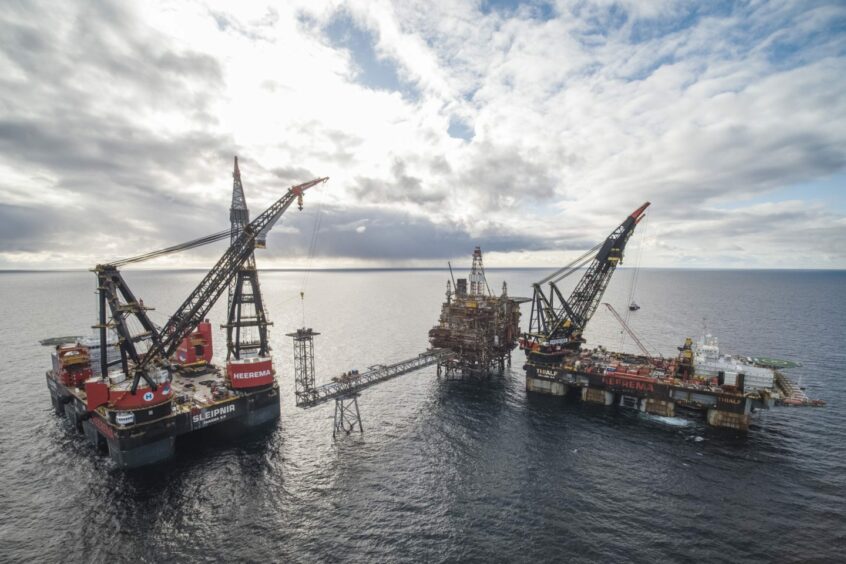
An HM Treasury review into UK oil and gas fiscal policy released as part of the Autumn statement signals “significant changes” to decommissioning tax relief, according to one expert.
Chancellor Jeremy Hunt handed down his Autumn statement on Wednesday, which contained several announcements related to the energy sector.
These included a £960 million Green Industries Growth Accelerator, measures to improve the national grid network and exemptions to the Electricity Generator Levy (EGL) for new renewables projects.
The Treasury’s oil and gas fiscal review also confirmed the government’s windfall tax will continue to apply to North Sea producers until at least March 2028, after which plans are underway for a new “price shock mechanism” to take effect.
While North Sea operators will be wary of what this new mechanism could involve, other potential tax policy changes surrounding decarbonisation investment and decommissioning funding are likely to get a more positive response from the industry.
Tax relief for decommissioning funds
One of the more significant changes in the oil and gas fiscal review is confirmation the government will “legislate in a future finance bill to introduce tax relief for payments made by oil and gas companies into decommissioning funds”.
After making a payment into a decommissioning fund, companies will be able to claim
‘Change of Use Relief (CoUR)’, “freeing them from any future decommissioning obligations in regards to the repurposed asset”.
Speaking to Energy Voice, Professor of petroleum economics at Aberdeen University Alexander Kemp said oil and gas companies have not received tax relief for this kind of funding in the past.
“[Previously] the government has said you will get tax relief when you actually spend money on decommissioning work,” Professor Kemp said.
“Now they’re saying that there will be legislation to give tax relief for provisions made by oil and gas companies into decommissioning funds.
“I think that package of ideas is actually quite welcome.”
‘Big change’ to decom tax policy
Professor Kemp said in terms of UK tax practice, it is a “big change”.
“This issue has been debated over the years [and] the problem of financial security for decommissioning has become a big issue with the government being worried that companies will either go bankrupt or disappear and leave the decommissioning baby with the government.
“So the idea of trust funds or an escrow account into which monies are paid during the life of the field could give assurance.”
While the UK government had long encouraged companies to put aside money for decommissioning activity, Professor Kemp said without associated tax relief it was a non-starter for most firms.
“Putting it into a gross fund was not at all attractive to companies and so they didn’t do it,” he said.
“But now that there is a significant change in thinking and, on balance and given the related issue of encouraging and repurposing of oil and gas assets like pipelines and reservoirs to facilitate carbon capture and storage, I think that package makes quite good sense and gives a reasonable incentive.”
Tax barriers to repurposing for CCUS
The measures also aim to remove the tax barriers to oil and gas assets being repurposed for use in carbon capture, utilisation and storage (CCUS) projects.
“That is very good in the sense that we want to encourage the change of use, repurposing oil and gas assets to encourage carbon capture and storage,” Professor Kemp said.
The review said these payments will cover the oil and gas company’s share of the decommissioning liability of the repurposed asset and be due tax relief of equal value to the relief available for ordinary decommissioning activities.
According to the Treasury, the changes will allow for “levelling the playing field between decommissioning and repurposing and supporting the transfer of assets”.
In addition, the review confirmed that while the current Decarbonisation Investment Allowance – which provides temporary, additional tax relief for decarbonisation investment – will cease after 2028, the permanent tax regime will continue to offer tax relief of £0.4625/£ on investment, including for decarbonisation.
Professor Kemp said he agreed with keeping these incentives as part of the permanent system.
“The permanent system is corporation tax of 30% and the supplementary charge at 10%, making 40%, and there’s an extra allowance for the supplementary charge.
“So as far as keeping the incentive for the permanent system, that to me is conceptually a good idea.
“There will always be, if we can agree that the permanent system will be permanent, this extra relief. So the simplification by just allowing the relief for the permanent system, I think it is justifiable.”
New ‘price-shock mechanism’
As for the windfall tax, Professor Kemp said he is not surprised the government will keep its Energy Profits Levy (EPL) in place until 2028.
“From the government’s point of view, it was a decision based on [the fact that] the rules were all there and although they were certainly controversial that, with a view to getting some revenues, they would just keep it,” he said.
Professor Kemp said what was more significant than the confirmation the EPL will continue until at least 2028 was that there was no mention of any scope for alteration to the total headline rate of the tax, which currently stands at 75%.
“The research that we have done indicated that when the EPL rate was lower… it clearly did less damage to investment incentives,” he said.
“So if there was any need in terms of incentives to reduce the burden before March 2028, then a change to the rate is a simple way to do it now that we’ve got all the nuts and bolts in place.”
Potential for revenues tax
In the longer term, Professor Kemp said while the review did not contain many details on what a potential oil price mechanism will involve post-2028, it did hint at a possible tax based on gross revenues rather than profit.
While a revenue tax would be more simple to implement, it could have a negative effect on investment in a mature basin with higher operating expenses like the North Sea.
“Basing a tax on gross revenues is of course much simpler than one based on profit, but in terms of economic effects and incentives, and the fact that it’s not related to profitability, it causes some problems,” he said.
While fields in the Southern basin could be relatively low cost and without complications due to shallower waters, other fields in the Central and Northern areas can involve high pressure and high temperature conditions or even heavy oil.
“They are much, much more expensive to develop and an imposition based on gross revenues will impact more severely on these [fields],” Professor Kemp said.
Investors want fiscal certainty
Above all else, Professor Kemp said potential North Sea investors are seeking fiscal certainty and will be anxious for more details on what the tax regime looks like after 2028.
“They would like fiscal certainty, because if you invest money in the North Sea the investment, even for a small field, will be over quite a few years,” he said.
“Getting a certain [tax] imposition out of the blue, and the danger of that, is not something that you would like as an investor.
“I’ve been researching North Sea oil and gas taxation since it started and there are an incredible number of changes over the years, often reflecting the short-term considerations by the government, and if you are a company planning your investment you’ve got to put that into your calculation that there might be another new tax.”
Recommended for you

 © Image: Heerema Marine Cont
© Image: Heerema Marine Cont
 © Supplied by TAQA
© Supplied by TAQA
